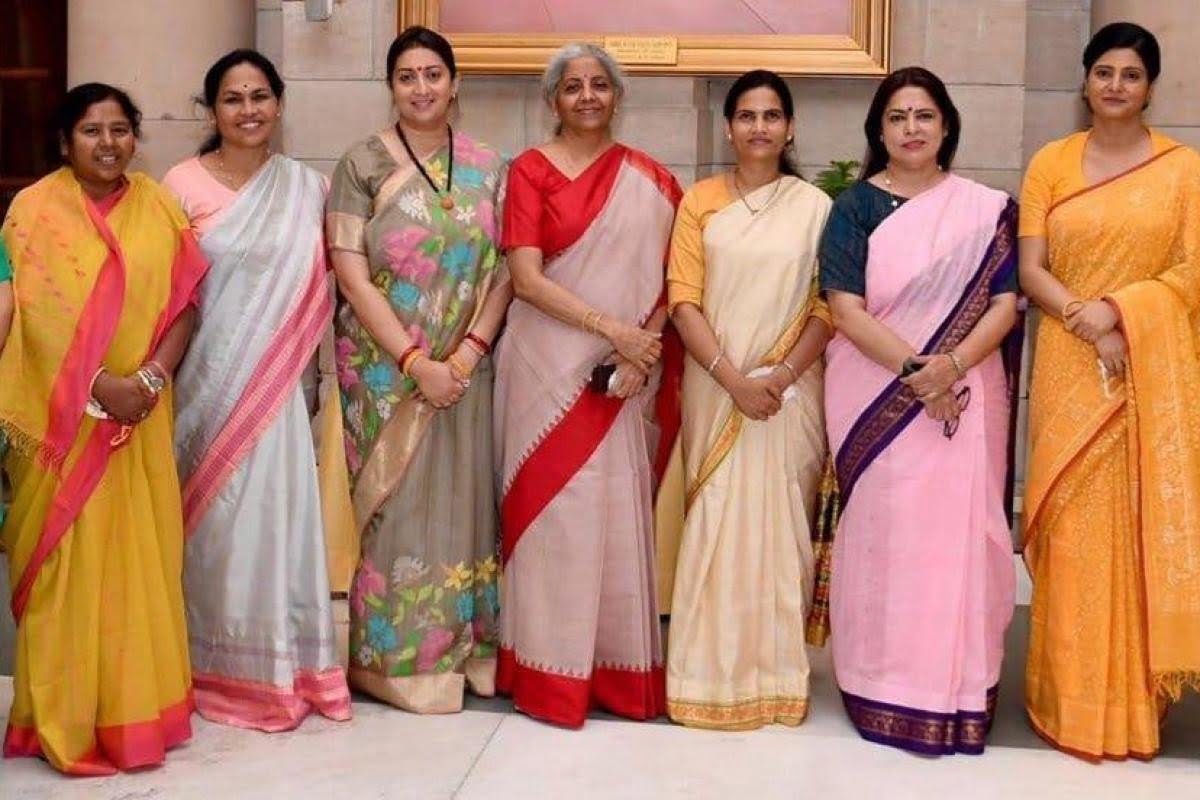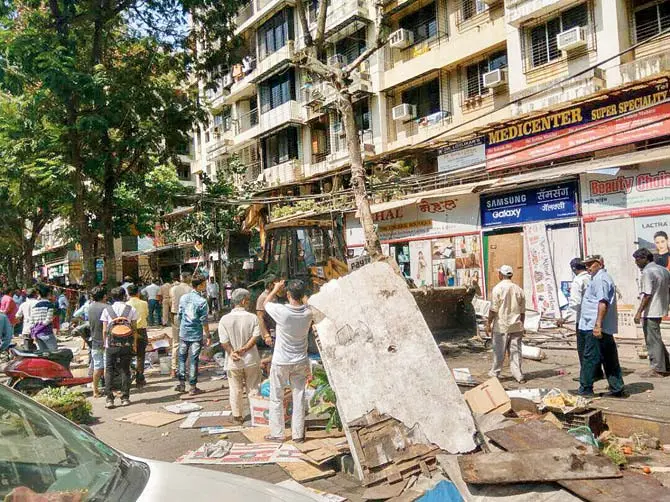The BJP government is making headlines with the recent cabinet reshuffling, for including 11 women in the Union council, the highest ever since 2004 appears as a cause for celebration for those upholding greater women power in politics.
Political observers have commented that this reshuffling of the cabinet to include lower caste leaders and assuring more presence of young leaders as well as women representatives is an indirect way of the BJP government admitting its shortcomings, especially during the pandemic and acknowledging the electoral necessity to revamp itself in a more positive light for the upcoming state elections in UP, Gujarat and Goa. The reshuffle has been praised and well-received by the people for being more representative but it is important to note how it is equally symbolic and tokenistic.
Firstly, this increase of women representatives is by a negligible margin of 1 as compared to the previous UPA governments which consisted of 10 women representatives in the Union Council each. Moreover, the scant representation of women in the cabinet is only 7% while the average of 156 countries is 23%.
Firstly, this increase of women representatives is by a negligible margin of 1 as compared to the previous UPA governments which consisted of 10 women representatives in the Union Council each. Moreover, the scant representation of women in the cabinet is only 7% while the average of 156 countries is 23%. The Global Gender Gap Report 2021 shows that India has fared worse than 2012 where it ranked 20th from the bottom in terms of the representation of women in Parliament. The widening gender gap has resulted in India falling 28 places, ranking 140th among 156 counties. The picture is gloomier in terms of political empowerment, with the country regressing from 23.9% to 9.1%. So, we have a long way to go before claiming to be genuinely representative!
Also read: Women In Politics: Looking Beyond Reservations
However, this sudden rhetoric of inclusivity in the Union council, especially of women representatives’ and the calculative addition of more women in the cabinet might simply be to attract the increasing female voter base.
The addition of eleven women leaders in the Union Council such as Smriti Irani, Meenakshi Lekhi, Nirmala Sitharaman along with MPs from diverse backgrounds such as Anupriya Singh Patel, Darshana Vikram and Shobha Karandlaje are capable women with powerful political background. However, the number of women holding cabinet portfolios is only two- Irani and Sitharaman, less than those in the previous Modi cabinet.
Over the years, some of these leaders’ political standing on issues concerning women have raised a few eyebrows.
For instance, Meenakshi Lekhi has been a part of the Drafting Committees for Bills like “Women’s Reservation Bill” and “Sexual Harassment of Women at Workplace (Prevention, Prohibition and Redressal) Bill”. The latter was passed by the Parliament but the Best Debut Women Parliamentarian’s strong support for Modi within the party is equally well known.
The recent reshuffle has included leaders such as Meenakshi Lekhi and Shobha Karandlaje who have expressed their vociferous support for the party’s Hindutva Propaganda. Both of these leaders were staunch supporters of Sabarimala’s restrictions on menstruating women’s entry into the temple. The now MoS External Affairs, Lekhi, went on to state that ‘ritualistic practices must be left alone if one does not agree with them’ labelling it tolerance and not a question of civil right, calling women who support the right to worship as ‘transgressing in the name of feminist rights and imposing themselves on god’.
The Parliamentarian was quick to take a U-turn when talking about abolishing the practice of instant Triple Talaq, not being a ‘he vs she issue rather a human rights violation’. The court’s verdict then was hailed as a progressive move. She further claimed that her party spoke of marriage and marriage rights. This is interesting to note given that the government and the mentioned women representatives themselves have been silent on both criminalising marital rape and the Women’s Reservation Bill in the Parliament citing its possible misuse. In 2018, she alleged Thomson Reuters India Women’s Safety survey 2018 as “fake” which named India as the most unsafe country for women. This report was rejected by the Ministry of Women and Child Development itself. And the MP’s comment only represented the “callous mindset” of BJP according to Brinda Karat.
Also read: Dear Smriti Irani, If Only Women Didn’t Have To Wear Their Bleeding Uterus
Shobha Karandlje, now Union Minister of State for Agriculture and Farmers Welfare has been in the news for a variety of false accusations from claiming Kerala of taking baby steps to become another Kashmir, to alleging Kerala tourism while promoting a local beef dish of raging ‘war against Hindus’ in Kerala. Her allegiance to the party and the RSS is well recorded. Apart from how her statements have had a communal tinge, she also backed Pramod Muthalik, chief of Rashtriya Hindu Sena, the parent organisation of Sri Rama Sena, who attacked ‘morally loose women’ who supposedly disregard Indian values in a Mangaluru pub in 2009. The accused was acquitted due to apparent lack of evidence despite 27 eyewitnesses and the incident is recorded on camera. Karandlaje was quick to express her sympathies for Muthalik who ‘spent six years in jail for no reason and stated that ‘women should learn to take care of themselves while noting that Mangaluru is a ‘sensitive place where untoward things happen to women’!
All of these women representatives have risen to power without any familial political backing and have done commendable work in their field but they must be questioned and held accountable. Their problematic stands on some issues concerning women are in line with the BJP’s own stand to privilege existing hierarchical norms.
Smriti Irani, the then and now minister of WCD, had some comments on the Sabarimala issue as well where women were fighting to claim public spaces based on fundamental rights. She was quoted saying “Will you take a blood-soaked sanitary napkin to a friend’s place?” Her silence on the recent Hathras Gang Rape case while talking of women empowerment in the UN was too loud to go unnoticed; just as it was during the 2017 Unnao rape case, perpetrated by BJP member Kuldeep Singh, who was found guilty. After a strategic silence on the Unnao case, she asked people to “have faith in the legal process” conveniently opting out from holding the accused accountable or even acknowledging caste-based rapes.
All of these women representatives have risen to power without any familial political backing and have done commendable work in their field but they must be questioned and held accountable. Their problematic stands on some issues concerning women are in line with the BJP’s own stand to privilege existing hierarchical norms.
Sanjana has done her Masters in Political Science from the Centre for Political Studies, Jawaharlal Nehru University. She identifies herself as a feminist and has an interest in gender and politics. She can often be spotted in a room full of fairy lights with headphones on, in an oversized tee! You can find her on Instagram and LinkedIn.
Featured image source: newindianexpress.com




